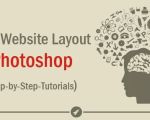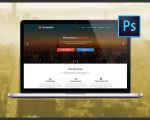- 1. Understanding the Role of a Website Designer
- 2. Key Factors to Consider When Choosing a Website Designer
- 3. How to Evaluate the Best Website Designer for Your Project
- 4. Questions to Ask Before Hiring a Website Designer
- 5. Real-Life Examples of Successful Website Designers
1. Understanding the Role of a Website Designer
A website designer is a professional who is responsible for creating the visual elements, layout, and user experience of a website. They combine technical knowledge with creative skills to ensure that the website is not only functional but also visually appealing. When searching for the best website designer, it’s important to understand what their role encompasses. Designers are responsible for crafting the structure of your website, selecting the colors and fonts, and ensuring that your website provides an optimal user experience (UX).
The best website designers can also integrate technical functionalities, such as e-commerce capabilities, responsive design for mobile devices, and SEO-friendly elements. Depending on the scope of your project, a designer may work alone or collaborate with other professionals, such as web developers and copywriters. The end goal is always to create a website that aligns with your brand and effectively serves its intended audience.
2. Key Factors to Consider When Choosing a Website Designer
Choosing the best website designer for your project is not an easy task. There are numerous factors to consider to ensure that you pick someone who aligns with your vision, budget, and timeline. Here are some of the key aspects to keep in mind when selecting the best website designer for your needs:
1. Experience and Expertise
The first factor to consider is the designer’s experience and expertise. A seasoned designer will be able to guide you through the design process, provide valuable insights, and create a site that reflects your brand’s identity. It’s important to evaluate their portfolio to see if they have worked on similar projects and if their style matches what you envision for your website.
2. Technical Skills
A great website designer should possess a good understanding of HTML, CSS, JavaScript, and other coding languages. While some designers may focus mainly on the visual aspects of the site, others might also offer technical expertise to implement advanced features, like custom plugins, e-commerce functionality, or API integrations. When choosing a designer, make sure they have the technical knowledge required to bring your ideas to life.
3. User Experience (UX) and User Interface (UI) Design
User experience is critical when choosing a website designer. A website that is difficult to navigate or has a poor design can negatively impact your visitors’ experience and hurt your brand reputation. A good designer will focus on creating a website that is easy to use, intuitive, and optimized for both desktop and mobile devices. Ask potential designers about their approach to UX and UI design to ensure they are capable of delivering a seamless experience for your users.
4. Budget and Timeline
Your budget and timeline are key considerations when choosing a website designer. The best website designers can create exceptional work within a reasonable budget, but you should be clear about your expectations from the beginning. Make sure to discuss the project scope, payment structure, and timeline up front to avoid any misunderstandings later on. While price should not be the only determining factor, it's important to find a designer whose services align with your budget.
3. How to Evaluate the Best Website Designer for Your Project
Once you have shortlisted potential website designers, it’s time to evaluate them more thoroughly to ensure they are the best fit for your project. Here are some steps to take when assessing the best website designer for your needs:
1. Review Their Portfolio
A portfolio is one of the most important tools when evaluating a designer’s work. It provides a glimpse into their style, versatility, and the quality of their previous projects. Look for designs that are aesthetically appealing, easy to navigate, and aligned with your vision for the project. Pay attention to the variety of projects in their portfolio to see if they can cater to different industries and types of websites.
2. Check Client Testimonials and Reviews
Client reviews and testimonials are an excellent way to gauge a designer’s reliability and professionalism. Feedback from past clients can provide insight into how the designer works, communicates, and meets deadlines. Positive reviews are a strong indicator of a designer's ability to deliver quality work, but be sure to also check if any negative reviews or issues were addressed effectively.
3. Ask About the Design Process
Understanding the designer’s process is crucial for ensuring they align with your expectations. Ask them to walk you through the steps they take in designing a website, from initial concept and wireframing to final design and launch. A well-defined process demonstrates their organization and approach, ensuring your project runs smoothly and on schedule.
4. Test Their Communication Skills
Effective communication is essential when working with a website designer. You want a designer who listens to your needs, asks relevant questions, and keeps you informed throughout the design process. Test their responsiveness and clarity in communication, as this will set the tone for the working relationship. A good website designer should be approachable, open to feedback, and proactive in offering suggestions to improve your site.
4. Questions to Ask Before Hiring a Website Designer
To ensure you're making the right choice, it’s essential to ask the right questions before hiring a website designer. Here are some critical questions to ask during the hiring process:
- Can you provide examples of websites you’ve designed that are similar to my project?
- What is your design process like from start to finish?
- How do you ensure a website is optimized for both desktop and mobile users?
- What is the expected timeline for completing my website?
- How do you handle post-launch support and maintenance?
By asking these questions, you can better understand the designer’s capabilities, approach, and how they’ll work to bring your vision to life.
5. Real-Life Examples of Successful Website Designers
Let’s take a look at a couple of real-life examples to see how the best website designers can make a significant impact:
1. A Successful E-Commerce Website Design
One of the top e-commerce website designers recently helped a local artisan business build an online store. The designer focused on creating a user-friendly interface, integrating a smooth shopping cart system, and ensuring mobile responsiveness. As a result, the artisan business saw a 30% increase in sales within the first three months of launching the new site.
2. A Portfolio Website Design for an Artist
Another successful website designer worked with a visual artist to create a portfolio site that showcased their work in an aesthetically pleasing and intuitive layout. The designer emphasized clean design, easy navigation, and high-quality image presentation. The artist’s website quickly became a go-to destination for potential clients and collaborators, thanks to its polished design and user-friendly functionality.
If you're ready to find the best website designer for your project, visit SitePoint 24 for recommendations and the best services tailored to your needs. Whether you're building a personal blog, a business website, or an online store, SitePoint 24 offers the resources you need to get started.








